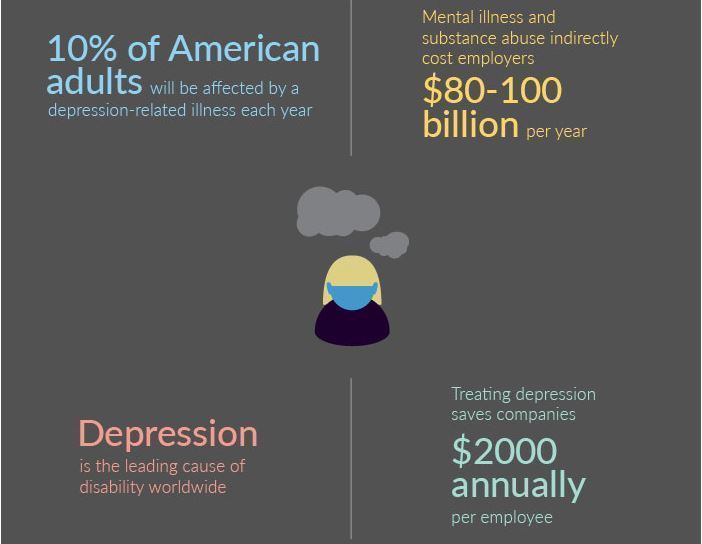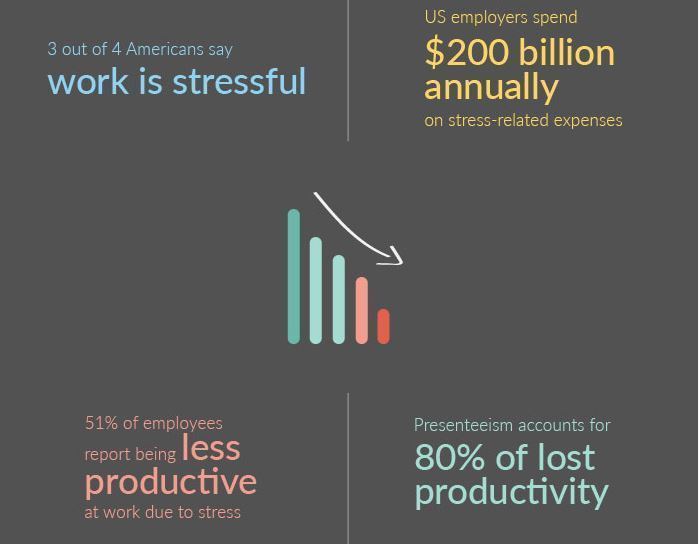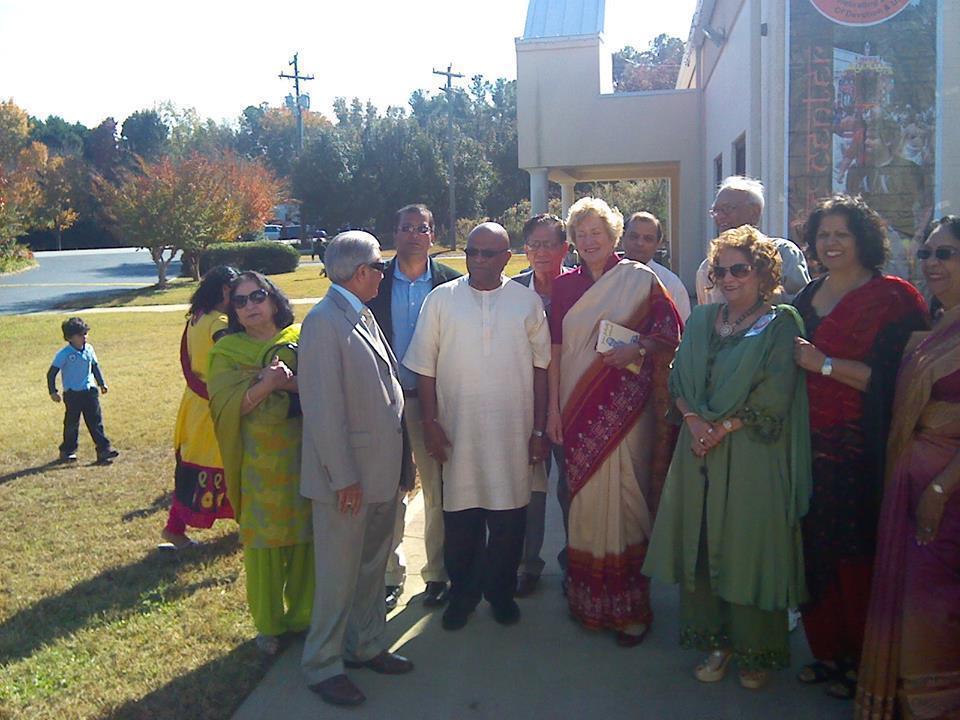Tag Archives for " workplace "
10 Easier Tips for Home, Job, and Work Success Living With A Mental Health Condition
“Help people live their greatest dreams and goals.” – Raj Gavurla
To help you with mental health continuum in your organization. As a very strong mental health advocate this is my solution to learn how to make it easier. This is at home and in the workplace in addition to the right treatment (with or without medication) and/or the right therapy.
Solution:
1. Employers allow people with a mental health condition to work with highly individually customized (reasonable) accommodations, right support system, and right support services . It’s very rewarding making an employee’s life better and benefit doing so because they continue to deliver a good job and good work for you in a capacity that benefits everyone involved.
2. Have dreams and goals for your life and work. See yourself successful.
3. Learn how to control your emotion using right thinking if having intrusive thoughts or images using your wisdom.
Phrases: “I control emotion.”, “I don’t see that.” or “Don’t see that”, “I don’t hear that.” or “Don’t hear that”.
4. Listen to the right people.
5. Listen to your body
6. Easier nutrition (no refined sugar, limit or no caffeine, 3-4 servings of fruit and veggies, 8 glasses of water, limit or no fried foods, limit or no alcohol, limit or no cheese, limit dessert, limit or no candy, limit or no late night eating)
7. Walk/Exercise and/or Run in a way towards your fitness goals without injury. Answer: What will be easier for you to do with you being fit?
8. Meditate for an hour daily. Feel your neurotransmitters and endorphins flow through your body.
9. Read to learn something for at least 20 minutes a day and apply the learning.
10. Do my mental performance skills and life tools workbook.
If interested, in your specific situation towards your greatest dreams and goals for you or someone contact me at 864.569.2315, raj@rajgavurla.com.
“When we seek to discover the best in others, we somehow bring out the best in ourselves.” – William Arthur Ward
Experiencing Innovation & Entrepreneurial Leadership #4: Solving Performance Anxiety
“Wanting to be someone else is a waste of who you are.”
– Anonymous
For programs and services, contact Raj Gavurla at 864.569.2315, raj@rajgavurla.com.
Performance and Entrepreneurial Leadership In Management Needed for Mental Health In Your Workplace
“Win your better outcomes: High Value and Valued ROI” – Raj Gavurla
Your valued employee is missing work more often and you can tell some things aren’t making sense. As leadership and management, you think about what’s happening to them. Then, your office manager or human resource person informs you they gave them the Employee Assistant Program (EAP) phone number. Of course, something serious happened yet you’re still puzzled. However, because you don’t know what to do or policy you don’t initiate to share authentic dialogue with your valued subordinate.
Your subordinate doesn’t know what’s happening as all they think is I’ve been having very unusual thoughts and not feeling well. It’s as if the microprocessor (brain) in my computer (body) isn’t consistently functioning. They really don’t know when told they have a mental health diagnosis what that means. They just hope the doctor determines the right treatment to help/cure/exhibit teamwork to allow them to successfully continue working and living a robust life. Sometimes for a percentage of workers, this happens and they continue successfully working and living a robust life. Often times the facts are this doesn’t happen and your employee’s performance is valued for periods of time and then an episode or something happens and they miss work or they aren’t exhibiting their consistent valued performance. A mental health challenge doesn’t discriminate based on socioeconomic or sociodemographic status.
There is a highly customized fluid solution for your valued subordinate. An example is:
1. You (Boss) initiating and sharing private authentic dialogue with your employee. It takes research better outcomes, preparation, interaction, and communication to deliver better outcomes for your subordinate (employee).
2. Understanding what his or her treatment plan is and the teamwork needed.
3. Forming a “small individual/personal matters team/group” to help your subordinate by involving a select group of trained employees as this employee’s support system in your workplace.
4. Understanding the high-value importance/urgency of their family, work, and financial sustainability to your subordinate’s wellness is essential. Their family is experiencing similar uncertainty as you about the well-being of your employee.
5. By taking the initiative and being proactive with a process your employee becomes better and your costs tremendously decrease because your employee is still able to work although it might be scaled back and is given the review and evaluation of their work during this time to continue being a forward performing valued successful employee.
Yes, taking these steps are asking for more effort on your part as Boss and employer. However, the following are some of the better outcomes (results) from taking initiative:
1. I know as employer, Boss, team, and employee each is doing everything they can to see each other succeed and your clients succeed. As an employer, you don’t have to do the bare minimum to be in compliance. There are value-add resources that can help you. As a strong mental health advocate, performance consultant/coach, and entrepreneurial leadership expert, my services might be a value-add to your current protocol for this situation.
2. Donating to charity is important and I encourage you to continue doing so to make your business and community stronger. However, a lot of times companies donate to non-profits (a humanitarian cause/need) without knowing the person they are helping to receive support services. By allocating funds for mental health in your company, you are essentially creating “charity in the workplace” and seeing your dollars actually being put to use for your valued employee and receive quality work completed for your efforts.
3. The sensation of having this humanitarian lens is very fulfilling, highly satisfying, and delivers a win for all (your business and community). Businesses are here to contribute to family and societal progress. Being a humanitarian to me means more than “spiritual brothers and sisters have to eat”. Being a humanitarian means “spiritual brothers and sisters have to thrive”. We are very capable of this mission and aspiration being a reality because of the forward progress we consistently make in employer/employee relationships and societal progress.
4. Most likely your employee becomes more loyal and continues to make forward progress in your company. Also, you now have an employee with high-value empathy skills and is part of your succession planning for your “small personal matters team(s)/group(s). Although most of your employees don’t have a mental health diagnosis, they do have mental health challenges whether spurred from a workplace issue or life issue that sharing authentic dialogue with select people in a “small personal matters team/group” would greatly benefit your business.
5. Mental health is our current major employer/social health challenge to the robust viability of our workplace we have to triumph along with cancer (you could imagine this affects a person’s mental health).
6. I’ve heard too many personal stories of talented, skilled, and educated people who are underemployed and not doing meaningful work. Because of this, there might be relationship problems because of the stigma associated with mental health and the individual might lose hope.
Sports often is at the forefront of employer and societal progress. An example is Lebron James addressing the Cavaliers in the locker room, welcoming, and helping Larry Sanders (mental health challenge) join the team and continue to progress in his NBA career. Yes, there are a lot of small business owners who are also helping and supporting individuals with a mental health challenge. How about your Fortune 500, mid-size, or over 50 employees small business?
Remember, being a humanitarian is more than “spiritual brothers and sisters have to eat”. Being a humanitarian is “spiritual brothers and sisters have to thrive”. It’s a win for all. It’s worth it!
If you are an executive, in management, or are a workplace leader, who is challenged by mental health in your business, please contact me to share authentic dialogue. Your leadership is needed and wanted.
“One’s destination is never a place but rather a new way of looking at things.” Henry Miller
For programs and services, contact Raj at 864.569.2315, raj@rajgavurla.com, LiiiVEN.
Value and Benefits of Non-Violence
“Live your great dreams they become greater.” – Raj Gavurla
When I heard the name Mahatma Gandhi, I did not realize his importance globally. Non-violence resonated with me. Think of the opposite. What’s the need?
Before attending a talk on non-violence, I thought of the violence I have seen. My first discussion of violence was in fourth grade. My friends and I were discussing how to defend ourselves. My Bruce Lee impersonation with sound effects sent a friend frighteningly into the supplies closet. Two guys fighting in the school cafeteria in sixth grade was my first encounter with violence. One threw chairs and the place cleared out with students in shock and not knowing how to respond. We couldn’t believe what was happening.
The next occurrence of violence occurred on a Sunday driving through downtown as a sixteen year old. As I slowly drove by, two men were fighting. A car stopped ahead of me and a mountain of a man stepped out in a three piece suit. He single handedly separated the two. They didn’t have a chance!
In history class my high school teacher assigned us a term paper. My paper was on the book, The Life of Mahatma Gandhi. A fascinating read by Louis Fischer and years later in 1982 the movie Gandhi played in theaters. The most vivid scenes for me was a reporter on the phone relaying the story of how Gandhi was leading a non-violence movement in South Africa and then India.
Violence didn’t occur again until I visited Hollywood on a tour bus parked adjacent to Grauman’s Chinese Theatre for tourists to shop for souvenirs. People screamed and began to gather, therefore, I rushed across the street because I’ve heard of people passing out from seeing a star. Brad Pitt, then they faint.
A car pulled up and three guys attacked another. A mob ensued. They were beating him and he fell to the ground. They continued to kick him! The girls with the guys tried to stop the violence. As the girls were being pushed aside, losing footing, and clothing, me and a guy running from the other side of the street were about to step in to help the girls. I’m not sure what I would have done. In hindsight, I think the best I could have done was to yell at the top of my voice. Fortunately, we heard a police siren and the guys doing the beating ran off.
As a motivational and inspirational speaker and author, I’ve been on the platform in front of diverse groups: Business and community groups, athletes, detainees in the mental health quad at the Greenville Detention Center, facilitate a mental health support group, and train police officers. Many of them have experienced violence either perpetrated by another or themselves.
I emphasize the following:
1. Non-violence towards yourself
2. Non-violence towards another
To have a deeper appreciation of non-violence the thought provoking talk I attended was part of an event at the Vedic Center of Greenville in Ahimsa Hall by Shrimiti Kamalaji (Gandhi Foundation). Ahimsa means non-violence.
My question to her: With the increase in non-military violence how do we create a non-violence movement in our community and society in order to consistently enable individuals’ dreams, aspirations, and hope successfully?
1. Non-violence isn’t to be legislated
2. Use self-discipline, aspirations, and passion for inner-peace
As I reflected on her answer, I think of the courage of Malala Yousafzai, (https://www.youtube.com/watch?v=3rNhZu3ttIU, https://www.youtube.com/watch?v=MOqIotJrFVM, https://www.youtube.com/watch?v=vrWttENgWNE) and of using books, pens, teachers, and education as a weapon and the non-violence movement in Hong Kong for democracy.
The words of Gandhi still reverberate:
“It has always been a mystery to me how men can feel themselves honoured by the humiliation of their fellow beings.” – Mahatma Gandhi
Think about what non-violence would look like in your community.
1. The evening news wouldn’t open with someone being shot, a school shooting, or a story on bullying.
Deeper
2. Doctor’s offices and hospitals serve sick people not cases of domestic violence
Deeper
3. There’s no suicide.
Deeper
What fills the void?
Consistently enable individuals’ dreams successfully. Without enabling great dreams there is apathy and violence as means for survival. Be determined to help, assist, and support someone you know and don’t know with earning and achieving great dreams because by doing so we find better ways and create new jobs (an occupation that didn’t exist) and better jobs (ones with career progression) to generate economic growth, peace, and raise the standard of living locally, nationally, and throughout the world.
Before we are capable of doing so, we need non-violence to produce economic growth and peace. What can you be involved with or do to create a non-violence movement in your community?
List three ways non-violence brings economic growth:
- ____________________________________________________________________
- ____________________________________________________________________
- ____________________________________________________________________
List three ways for you to benefit from non-violence:
- ____________________________________________________________________
- ____________________________________________________________________
- ____________________________________________________________________
By having a conversation with a group or a person about the items you listed you have an opportunity to enrich and expand or create a non-violence movement in your community. We will have a better future by creating a non-violence movement in communities throughout the nation and world. Enable great dreams – they become greater.






